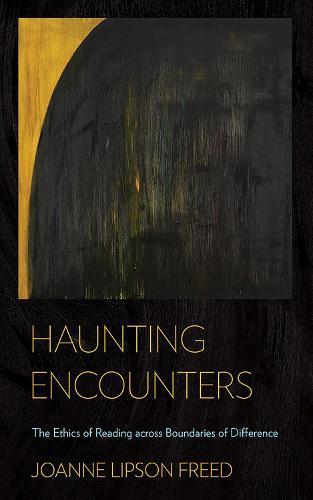Overview
Acts of cross-cultural reading have ethical consequences. In Haunting Encounters, Joanne Lipson Freed traces the narrative strategies through which certain works of fiction forge connections with their readers across boundaries of difference. Freed uses the idea of haunting-an intense, temporary, and transformative encounter that defies rational understanding-as a metaphor for the kinds of ethical relationships that such works cultivate with their readers across boundaries of difference. Freed points out how such works as Toni Morrison's Beloved, Leslie Marmon Silko's Ceremony, and Arundhati Roy's The God of Small Things strike a delicate balance between empathy and alterity. Their engaging narratives, Freed argues, bring unfamiliar characters and distant settings to life for readers who encounter them as ""other,"" but they also highlight the limits of fiction, holding in check the impulse to colonize another's experience with one's own. Haunting Encounters is a sensitive and perceptive application of theory to real-world concerns. It draws together the fields of postcolonial fiction and narrative ethics and suggests original modes of engagement between readers and books that promise new ways of looking at the world.
Full Product Details
Author: Joanne Lipson Freed
Publisher: Cornell University Press
Imprint: Cornell University Press
Dimensions:
Width: 14.00cm
, Height: 2.20cm
, Length: 21.60cm
Weight: 0.454kg
ISBN: 9781501713767
ISBN 10: 1501713760
Pages: 220
Publication Date: 15 September 2017
Recommended Age: From 18 years
Audience:
General/trade
,
General
Format: Hardback
Publisher's Status: Active
Availability: Manufactured on demand

We will order this item for you from a manufactured on demand supplier.
Reviews
Haunting Encounters takes seriously the ethics of reading narratives across cultures. In this smart and and eloquent book, Joanne Lipson Freed deliberately chooses texts from a range of cultures, nations, standpoints, and media to focus attention on the specific strategies used to cultivate ethical understanding. --Sue J. Kim, UMass Lowell, author of On Anger The beautifully written Haunting Encounters addresses itself to one of the most crucial literary questions of the current age: What does it mean to read ethically in a world shaped by savage inequalities and robust differences? Joanne Lipson Freed's writing is graceful and elegant, her close readings deft and attentive. This book could spark productive classroom discussions on the ethics of particular narrative strategies and the social impact of undergraduate reading. --Shameen Black, Australian National University, author of Fiction Across Borders
The beautifully written Haunting Encounters addresses itself to one of the most crucial literary questions of the current age: What does it mean to read ethically in a world shaped by savage inequalities and robust differences? Joanne Lipson Freed's writing is graceful and elegant, her close readings deft and attentive. This book could spark productive classroom discussions on the ethics of particular narrative strategies and the social impact of undergraduate reading. -- Shameen Black, Australian National University, author of <I> Fiction Across Borders</I> Haunting Encounters takes seriously the ethics of reading narratives across cultures. In this smart and and eloquent book, Joanne Lipson Freed deliberately chooses texts from a range of cultures, nations, standpoints, and media to focus attention on the specific strategies used to cultivate ethical understanding. -- Sue J. Kim, UMass Lowell, author of <I>On Anger</I>
Author Information
Joanne Lipson Freed is Assistant Professor of English at Oakland University.




